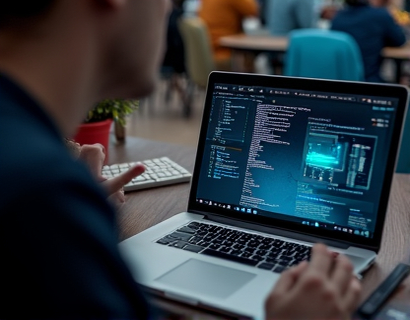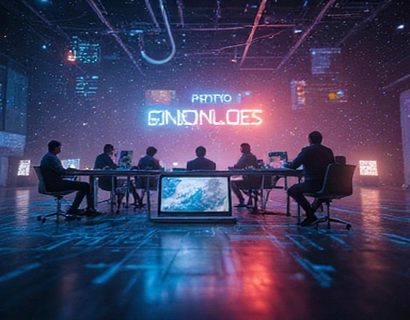Transforming Learning: The Power of AI-Powered Chat Interfaces in Robotics Education
In the rapidly evolving field of robotics, the need for accessible and engaging educational resources has never been more critical. Traditional methods of learning robotics can often be daunting, especially for students and young learners who are just beginning to explore this complex and fascinating industry. However, the integration of AI-powered chat interfaces is revolutionizing the way we approach robotics education, offering a safe, specialized, and interactive learning experience. This article delves into how these advanced chat systems are making robotics more approachable and enjoyable for the next generation of innovators.
The Importance of Specialized Content
Robotics is a multidisciplinary field that combines elements of mechanical engineering, electronics, computer science, and more. For students and young learners, navigating this vast and intricate landscape can be overwhelming. An AI-powered chat interface dedicated to robotics provides specialized content that is both accurate and relevant. This content is curated by experts in the field, ensuring that learners receive verified information that aligns with current industry standards and practices. By focusing on specialized topics, these chat interfaces help demystify complex concepts, making them more digestible and engaging for young minds.
Ensuring Safety in Online Learning
Safety is a paramount concern when it comes to online learning, especially for children and students. An AI-powered chat interface designed for robotics education prioritizes a secure environment, free from inappropriate content and potential hazards. The platform employs advanced algorithms to monitor and filter interactions, ensuring that all information and discussions remain appropriate and safe. This child-friendly approach not only protects young learners but also builds trust, encouraging them to explore and ask questions without fear of encountering harmful or misleading content.
Interactive and Engaging Learning Experiences
The AI-powered chat interface transforms passive learning into an interactive and engaging experience. Through natural language processing, the chat system can understand and respond to a wide range of queries, from basic questions about robotics components to more advanced topics like machine learning and artificial intelligence. This dynamic interaction keeps learners engaged and motivated, as they can explore topics at their own pace and receive immediate feedback and explanations. The conversational nature of the chat makes learning feel more like a dialogue, fostering a deeper understanding and interest in the subject matter.
Accessible for All Learners
One of the most significant advantages of an AI-powered chat interface in robotics education is its accessibility. Whether a student is a visual learner, an auditory learner, or prefers hands-on activities, the chat system can adapt to different learning styles. For instance, it can provide detailed text explanations, link to visual resources like diagrams and videos, and even simulate interactive experiments. This multifaceted approach ensures that all learners, regardless of their preferred learning method, can grasp and retain complex robotics concepts effectively.
Support for Educators
Educators play a crucial role in guiding students through their learning journey, and an AI-powered chat interface can be a valuable tool in their toolkit. The platform can offer educators a wealth of resources and insights, helping them to better understand the topics they are teaching and stay updated with the latest advancements in robotics. Additionally, the chat system can assist teachers in creating customized lesson plans, providing supplementary materials, and even answering common student questions, thereby enhancing the overall educational experience.
Fostering Critical Thinking and Problem-Solving Skills
Beyond mere information dissemination, an AI-powered chat interface in robotics education is designed to foster critical thinking and problem-solving skills. By engaging in conversations and solving robotics-related puzzles or challenges, students develop analytical skills and learn to approach problems methodically. The chat system can present scenarios and ask students to propose solutions, encouraging creative thinking and innovation. This interactive approach not only makes learning more enjoyable but also prepares students for real-world challenges in the robotics industry.
Building a Community of Learners
Another key feature of the AI-powered chat interface is its ability to build a community of learners. Students from different backgrounds and locations can connect, share ideas, and collaborate on projects. This community aspect not only enhances the learning experience but also exposes students to diverse perspectives and approaches, enriching their understanding of robotics. The chat system can facilitate group discussions, project collaborations, and even virtual robotics competitions, fostering a sense of belonging and motivation among learners.
Continuous Improvement and Adaptation
The AI technology behind the chat interface is continuously improving, learning from each interaction to provide more accurate and relevant responses. Machine learning algorithms analyze user queries and feedback to refine the chat's capabilities, ensuring that the content remains up-to-date and aligned with the evolving needs of students and educators. This adaptive nature means that the platform can quickly incorporate new developments in the robotics field, keeping learners at the forefront of innovation.
Conclusion
The integration of AI-powered chat interfaces in robotics education marks a significant step forward in making this complex and exciting field accessible to students and young learners. By providing specialized, safe, and interactive content, these chat systems not only enhance the learning experience but also inspire the next generation of robotics enthusiasts and professionals. As technology continues to advance, the potential for AI to transform education in robotics and beyond is immense, offering a bright and promising future for all learners.










































